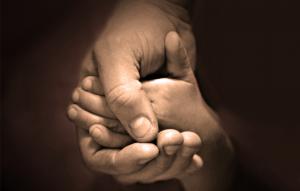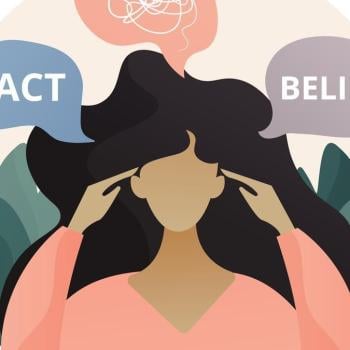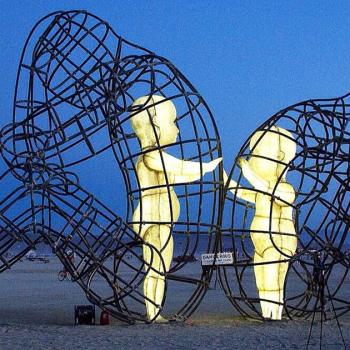
I was brought up in the faith, and as a very young boy, used to read the Bible each night with my Dad, before bed. On one such occasion, Dad presented me with the idea that everyone was equally important in God’s eyes. At the age of five, I was struck by a compelling conclusion:
“Does that mean I’m as important as the Queen?” I asked.
“Yes, but it also means you’re as important as the nearest tramp,” Dad answered.
Tramp is a now-disused UK term for a homeless person. The contrast was stark – the Queen of England, surrounded by attendants and riches in her palaces, and a homeless person, filthy and alone under a hedge. It was what I now call a zen moment – when something strikes you so powerfully you resonate like a gong, leaving you becalmed and thoughtful in the aftermath.
It did something to me, instantly rearranging my perspective. I felt the change, though at the time I couldn’t put it into words. From that moment onwards, I saw people in a different light. I understood on a simple but profound level that we are all infinitely valuable, because we are all made in the image of God, and are loved.
I remember a journey to school on a bus, years later, when I was about thirteen. We drove past a homeless person, and someone nearby growled through gritted teeth:
“Get a job!”
I was shocked, and immediately angry. This homeless person was precious to God, but in an instant they had been dismissed and judged, for their misfortune. Dad’s lesson had burrowed deep into my psyche.
The school I attended was posh, private, and fee-paying. From the very first day they blew smoke up our posteriors:
“You will be Captains of Industry…”
“You are the brightest and best in the land…”
“This school has produced some of Britain’s finest…”
“Thirty percent or more of you will go to Oxford or Cambridge…”
It all rang hollow to me. I had an unswerving, instinctive dislike of pomp, which has only intensified with age. The constant braggadocio never felt like a cloak I could comfortably wear, because to wrap myself in it meant forgetting the tramp. The sales pitch was constant, but my heart would not accept that some people were more important than others.
I chose my school-friends the same way. If someone was bullied and marginalised, I befriended them, though that drew the bullies’ attention to me, as well. This wasn’t from some sense of duty or moral superiority – my heart just went out to the kid being picked on. I couldn’t stand the thought of his pain, so he became my friend, as did the next one, and the next one.
This has served me well in life. I have wonderful friends, most of whom don’t push themselves forward as the brightest and best, and don’t indulge in boastful speech or behaviour. These are down-to-earth people, unpolluted by overweening personal ambition. They are the salt of the Earth. And you know what? The salt of the Earth are loyal; the very best, most devoted friends a person could ask for. I have high-achieving friends too, but only those who’ve worked hard to pop any bubble of self-importance, and who use their position for the good of others.
In my twenties, I was privileged to travel the world as a missionary, where I saw and shared the experience of those trapped in terrible forms of poverty. I saw children playing in sewage, running freely down the street in Cebu, Philippines. I got to enter these families’ homes, which were little more than walls of banana plant fibres and scavenged roofs of corrugated tin, where I received the warmest welcome I’ve ever known. It was an honour to meet and talk with these people, whose lives were more honest and uncomplicated than my own. I cannot claim to have helped them, but they helped me by opening my eyes. Such is the nature of travel, when you go off the paved paths, laid for tourists.
Exposure to poverty only deepened my father’s lesson. When I hear news stories of refugees, dying in the English channel, my heart is only with the people in need. To me, national character is defined by how we treat those who come to us, in need of support, inclusion and a welcome.
When I look at the life of Jesus, I don’t see a guy seeking the approval of the well-to-do, or courting the companionship of the powerful. I see rugged, raw humanity, arms open wide to all who suffer. When I spend time in the Gospels, I see a person driven by compassion, for whom nobody was more special than anyone else. I see God, willing to serve his own creation, bending to wash our feet. I would have loved to be in that company of disciples, walking and talking with the Lord and his rowdy bunch of rebels.
When I think back on those few words from my Dad, I see them as a rock, dropped into the stream of my life and diverting it forever. He will no doubt think I’m exaggerating, or overdramatising the moment, but I know better. That single lesson imparted to me a principle of compassion which has shaped my perspective and decisions ever since.
Where do you see Jesus? Is he hanging out with the rich and powerful, or is he with the bewildered, the suffering, and the lost?
Lord, develop in us new depths of compassion. Soften our hearts, where they are hard, and help us shift our gaze to the marginalised, placing their needs above our own. In doing so, we find you.












